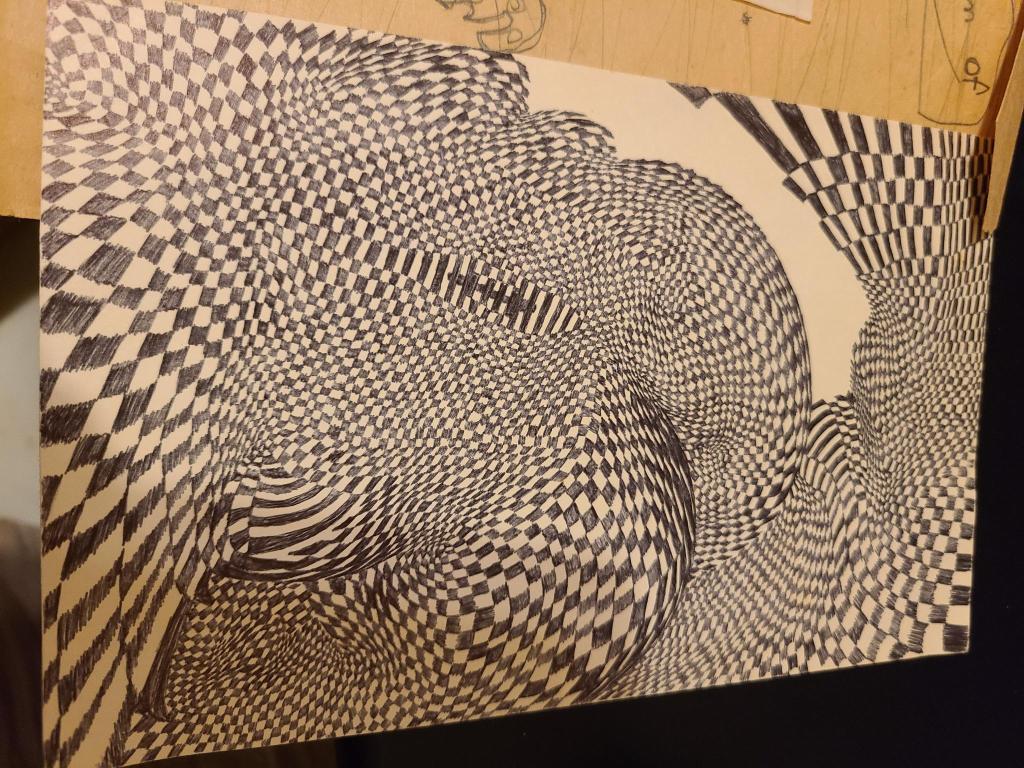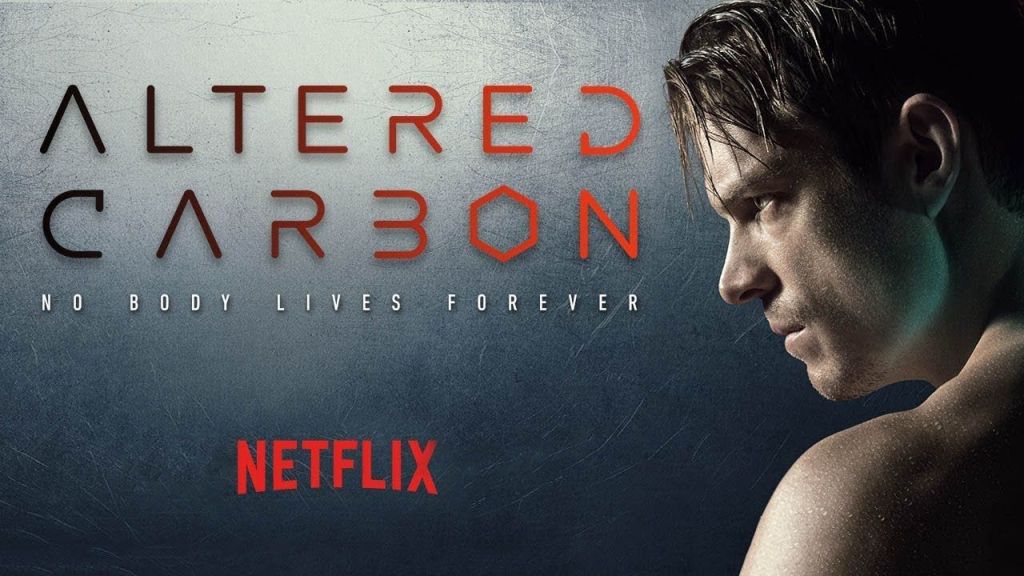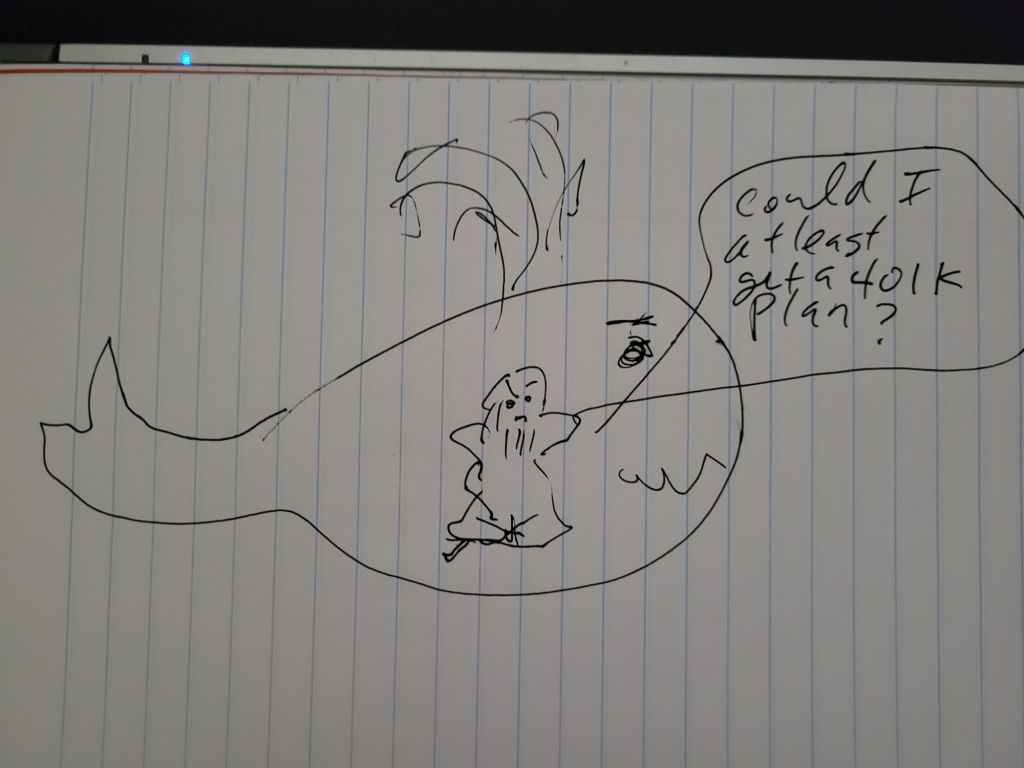-
Implications of the human blind spot

There’s a place in the eye where the nervous system meets the retina. That area can’t detect light. There’s a simple experiment you can do that will show you where it is.
What blows my mind is you have to try to see it. It’s not a black spot. It’s a blank spot. Same color as the background. Your mind fills it in with what it assumes must be there.
There are conditions that make it obvious. When I have a migraine (it’s been a while thank God), I can’t see what’s in the very middle. I had a migraine on press day once. Reading words on a screen was excruciating. I could only see the edges of whatever I looked at. Luckily I spent a little time in a dark office and it went away.
The old woman I met on a Greyhound bus once, was an even more extreme example. She said she couldn’t see the middle of anything. It sounded pretty disabling, but she seemed to get a kick out of it.
“I looked out the window at my little weenie dog yesterday and he was just a dog’s head attached to a tail,” she said. “Then he turned to look at me and he disappeared. Haw haw.”
I’ve been pondering what all that implies. First of all, it’s always possible you could miss little things, just because you literally can’t perceive them.
You don’t even have to get into how we can’t see infrared or ultraviolet. There are just… holes in our perception. Our brains hide them from us.
If a critter had been riding on that woman’s dog, she never would’ve seen it.
If you have reasonably good eyesight, it isn’t likely that anything you need to see will be hiding in your blind spot. But it could.
We can only see, hear, feel and taste what our bodies will allow. There will always be a layer between us and what’s truly there.
What else is the mind filling in for us?
-
Feelin’ wavy today – what if it’s all waves?

I was in the pool this morning and couldn’t resist staring at the light show on the wall and ceiling. It was beautiful, like fire, but not. I think I was the only one who noticed.
Got me thinking about the nature of things, and how so much of what we think of as real or solid, is just a pattern caused by ripples crashing into one another.
I wonder if you had enough computing power, could you examine the reflected light and discern how many people were in the pool and what they were doing?
As my exercise class got underway, the ripples of reflected light became more chaotic, as we thrashed around with our styrofoam “weights.” I thought how hard it is to detect a pattern when there are so many patterns going on all at once.
So much of what we take for granted makes sense when you think about it that way – society, culture, politics. Ripples intersecting – and the interference patterns they create.

Can you think of those 3D-looking shapes in the center as “objects” or are they just the effect of the concentric circles that make them up? I think culture is like one of those shapes, an interference pattern.
Interference patterns fascinate me. Back when I was a college art student, I got on an Op Art kick.
It was apparently fashionable in the 60s to decorate clothing and other items with distorted black and white checkerboard patterns. Most of it was eye-poppingly hard to look at, but the principle of it attracted me.
Especially the moire effect – the crazy patterns created when things like window screens and lace curtains intersect.
This was long before I had a computer, so all I had to work with were a compass, paper, pen and ink. My mother got annoyed over it. “We sent you to school to study art and you’re sitting around drawing circles?”
And distorted checkerboard art, which I decided was cooler.

Particle physics fascinates me. Muonium is a thing! Who knew? I at least try to follow news from the Large Hadron Collider. I know just enough to be dangerous, but I am familiar with the idea that a thing can be a wave or a particle depending on how you look at it. How strange.
It occurs to me lately that Western culture has maybe leaned a bit too hard on the particle side of things. Particles are like bricks. You can make things out of them. What would it feel like to see more of the world as waves?
Even a mountain is a kind of wave. Just an incredibly slow one. Usually. Icelanders can verify how fast and wavy “solid rock” can become. The crust of the earth floats on a sea of hot magma. You have to expect there are going to be ripples.
Cultures are like ripples, and ripples intersecting with other ripples. Sometimes, maybe most times, what you see as a defining pattern is an intersection of other patterns.
I think of a culture as concentric circles of influence. Art, music, movies, ideas about the world, how it works, how it should work, who’s good, who’s bad, what’s right and what’s wrong, what’s important, what isn’t.
There are dissonant ripples within. There are ripples from outside. The patterns get messy and chaotic like the lights on the wall when we began to splash around.
And sometimes they come together and form a new pattern, recognizable as an object. The ideal is to appreciate the beauty of that pattern in itself and not think you can or should pull the concentric circles apart.
I think Americans have been going through an identity crisis for quite a while now. What are we? People try to identify with one heritage or another, but it doesn’t quite capture it.
I’ve decided American culture is an interference pattern. We’re the shapes created when those circles intersect, not any of the constituent parts. I think that’s a better metaphor than melting pot. We’re not just this mushy stew. People abroad can tell we’re Americans.
They don’t recognize us as Europeans, Africans, Asians or what have you. We have an identity. It’s just not an easy to define identity. We’re like that light show on the wall at the pool. And I kinda like that.
-
Dune’s success and (sort of) failures

Just watched Dune 2 for the second time and it was a very different movie this time. But this time, I tried a little experiment. I decided to pretend like I believed in magic and see how it came across.
That’s where Dunes 1 & 2 succeeded magnificently. The fact that you can choose to do that or not and the movie still works is ingenious.
I think Villeneuve managed to do something Damien Walter has been calling for in his essays: bring the mythos back to the modern world. He gave us a story that kind of reenchanted the world.
The modern world has improved a lot of people’s lives, but at the same time taken away a lot of meaning. I don’t think people live well without meaning.
The fact that people are discussing and arguing about their interpretations of the Dune movies and books is a very good sign. I look forward to seeing more like it. Hopefully Dune Messiah will get made.
Where it falls short for me
I’m not sure how effective Villeneuve or even Frank Herbert himself have been at spreading these messages: 1) Beware of following charismatic leaders and 2) absolute power will rob you of your humanity.
The problem with the first message is point of view. In Dune, the Fremen chose Luke Skywalker and ended up with Darth Vader. But the main character is not one of the Fremen.
Most people, particularly young men, are going to root for Paul Atreides all the way to the end, no matter how dark he gets.
Hollywood let the hero off the hook in the Star Wars trilogy. In this story, Luke was always going to choose the Dark Side.
To get the point across, I think we needed a main character who believed in Paul and became disillusioned. Something like a first person account of a Bedouin warrior who believed in T.E. Lawrence then saw his people freed from the Ottomans, only to wind up under the thumb of the British.
Villeneuve made Chani a stronger character than she was in the book in an attempt to get Herbert’s main point across. I felt it: Paul had betrayed his lover and the Fremen. What a shame.
But not everyone did (I saw someone say Villeneuve did it to please SJWs). The problem is Chani wasn’t the main character. People were still excited about Paul’s victory. Chani was just an acceptable casualty.
Watching Dune 2 as if I believed in magic made the power more… powerful. It felt like metaphysical cocaine, pouring out of the screen. Intoxicating.
Regarding point number 2, the darkness of power… well, that’s just a hard message for anyone to get across. I’ve never published a book or directed a movie so who am I to judge?
In particular, how are you going to convince young men who feel they have little or no power that absolute power wouldn’t be a bitchin’ great time?
It’s one of the worst addictions you can have, because you need it to survive. It’s like food. Not having it could kill you.
And yet I agree with Herbert’s point. Absolute power will take your humanity. The fact that major powers looking to one-up one another find it acceptable to threaten each other’s populations with nuclear destruction is rather monstrous, isn’t it?
Empires used to just sack each other’s cities and leave it at that.
Herbert makes his point by portraying power-hungry characters as ugly. The Baron Harkonnen is Jabba the Hut. Leto II turns into a worm.
Tolkien in The Lord of the Rings makes the same point: Don’t go for the One Ring or you’ll turn into a gigantic flaming eyeball.
The problem is, I think Herbert and Tolkien underestimated the number of guys who aren’t afraid of turning into a giant worm or a flaming eyeball.
-
Altered Carbon, is there more to a human body?

Decided to give Altered Carbon another shot on Netflix. Season one. Not sure if I’ll try the second season.
It was better this time. Because I think it’s about an idea that’s on a lot of our minds lately: transhumanism. The idea that man and machine can and should become one and the same.
Is it ethical? Is it wise?
I remember liking both the book and the show, but I had a hard time suspending disbelief the first time around. The hard sci fi part of me wasn’t didn’t buying their method of space travel.
But this time around I realized I’d been looking at it all wrong. Whether it’s possible or not is irrelevant. These are the important questions: What is a human being and what is it worth? What, if anything, is the human soul? How are we different from animals or machines?
It has become common these days to think of the mind as software running on the hardware of the human body. Something that could be digitized and kept alive in an actual machine.
Is that possible and if so, what are the ethical implications? Especially if you think of the mind and the soul as essentially the same as I do?
I suspect that even if you could upload your mind into a machine or another body – something would be missing. Something important.
My outlook on that topic has changed over the years. Back when I was reading a lot of cyberpunk, I used to think I wanted that. Not anymore. Since it turns out we don’t understand consciousness, I don’t think they could get it all. And I don’t think that’s possible. I’m afraid I’d be giving myself a kind of lobotomy.
And if I’m wrong, if the soul CAN be copied, what does that imply? That it’s nothing special, only software. Would an exact copy of a person have rights ? The same rights as the original? Black Mirror has been all over that topic. The White Christmas episode… Shudder.
Assuming you could treat the human body as an expendable “sleeve,” what would that mean for society?
One obvious implication is massive disrespect for the human body.
And a massive loss of empathy. Especially from those who could afford multiple re-sleevings.
Which gets into the REAL point of the show as I see it: the immorality of immortality.
Notice the decadence of the Eternals. Notice the suffering in the world and how little they seem to care. Even the rich kids can’t grow up because there’s no place for them. No reason to be responsible.
Society is kind of that way as it is. The wealthy live longer than the rest of us. Better healthcare, better food, safer neighborhoods. Is that fair? And do we really want to make it eternal?
-
Dune: Power at what price?

Saw Dune part 2 last night. I liked it and I think maybe I loved it. I still need to absorb what I saw, but it looked amazing. Definitely a spectacle, one that actually means something.
I’ve seen reviewers refer to it as the “Star Wars Killer.” I think that’s overstating the case, but I do hope it becomes a cultural moment for young people.
I was blown away when Star Wars came out. It was so different from what came before. Now, with so many Star Wars “products,” it doesn’t seem quite so special any more. We’re old, we had our turn.
There were a few changes from the original story, but I’d say they served Herbert’s vision.
Villeneuve conveyed a message that I didn’t even get when I read Dune the first time: Paul Atreides isn’t a hero. He’s an anti-hero.
The interaction between Paul and Chani made it very clear. Paul gained a tremendous amount of power, but lost so much that really mattered.
The fact that he didn’t have a choice – it was either win or die – doesn’t make it right. It makes it a tragedy.
The main point I take from that is, why the hell would you want to do all that shit if you DID have a choice? Only for power? How could it possibly be worth it?
I think it’s a message for guys raised on the mono-myth of the hero’s journey who think, “I would love to have that kind of power.” No you fucking wouldn’t.

My wife and I saw Dune at an IMAX theater. Really great seats.
-
IFS: Meeting the people inside your head
Richard Schwartz explains his IFS system.
When I first saw a video in my YouTube feed about Internal Family Systems (IFS), I skipped right past. It’s just me and the missus here and we get along fine.
It wasn’t at all what it sounded like. IFS is actually a kind of therapy for individuals invented by Richard Schwartz.
I’ve watched Schwartz in several interviews and I remain intrigued.The idea is that you have a “family” of parts in your mind that behave like individuals. If you do things to sabotage yourself it’s usually one of those parts trying to protect you from reliving some childhood trauma.
You can talk to them and they answer. If you talk to them properly you can heal the “exile” and get the protector to relax.
It’s the opposite of what they used to teach about multiple personalities, that trauma causes them.
It’s more that you already have them without realizing it, but trauma makes them more noticeable.
Schwartz divides the parts into exiles and protectors, which can be managers or firefighters. Exiles, being the vulnerable parts we try to lock up to keep from reliving their trauma. Managers arrange your life to avoid triggers. Firefighters erupt when you’ve been triggered, to stop you reliving an exile’s traumatic memories. At the heart of it all is Self, which is curious, compassionate and knows how to heal.
The more “Self energy” you bring to the conversations, the more they will trust you. I think of it as the part of the ego that’s most genuine, most connected to the center that Carl Jung calls Self.IFS reminds me of Carl Jung’s active imagination, which I’ve also tried with limited success.
My current thinking is that Jung helps you deal with the stuff in your head that culture puts there, and IFS is for all the people you used to be who are in there suffering.
The idea is to heal them and get them working together.
It sounds so crazy at first, but I’ve played around with it and I swear it works.
As an American, it feels revolutionary. We’re taught to repress our painful parts, not make friends with them.
(more…)
-
Subscribe
Subscribed
Already have a WordPress.com account? Log in now.




You must be logged in to post a comment.